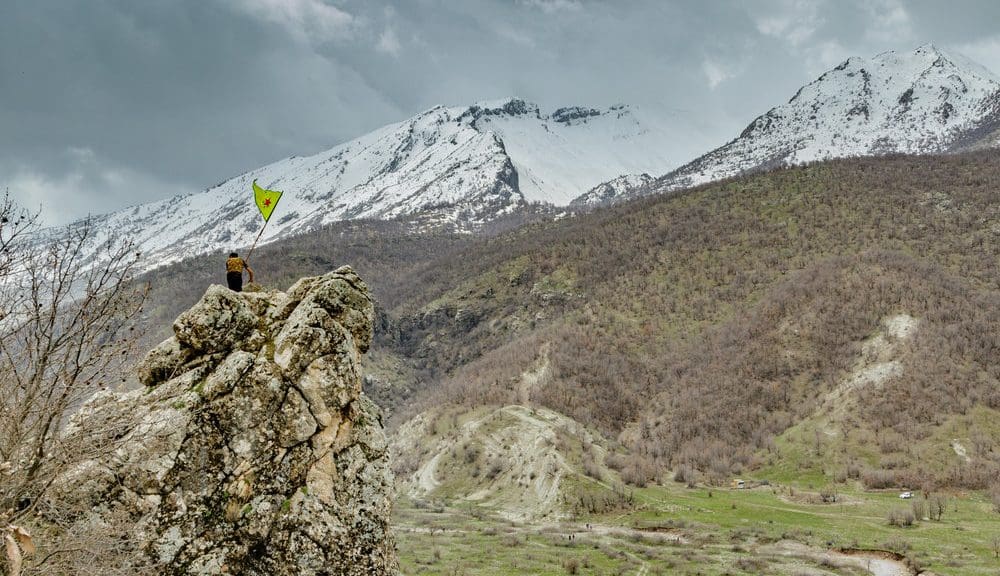The insights in Hannah Dobbz’s Nine Tenths of the Law: Property and Resistance in the United States may also be useful for property resisters elsewhere
A book review by Antidote’s Ed Sutton
“Simply by writing this book Dobbz has already moved the ball forward, providing the movement with an identity and a history, pointing out some of its past mistakes, and warning of potential future pitfalls. Time to set up the next play.”
Hannah Dobbz hit me right between the eyes with Nine-Tenths of the Law: Property and Resistance in the United States (AK Press, 2012), a history-critique-memoir that is far from mundane.
I have been spouting off recently that housing is the true physical front line of the struggle between Capital and the Commons—we see it in cities in periods of both development and decline: as Capital expands, the Commons gets pushed out (but never without resistance) and when Capital recedes, the Commons flows back in (also generally not without resistance, it should be noted). Both the Commons’ resistance in times of Capital’s expansion and its ‘flowing back in’ in times of recession frequently take the form of squatting structures that Capital, in its short-sighted wasteful avarice, either wants to destroy and replace or has abandoned. In this sense, squatting is frequently explicitly political. And it is frequently awesome.
But I am getting ahead of myself. It seems like I should briefly discuss terms. With apologies to those who prefer more precise orthodoxy, I use the words ‘Commons’ and ‘Capital’ very, very broadly to describe on the one hand objects, places, forces, or groups of people that exist and operate—if even only partially—outside or irrespective of the current primacy of the ethos of ownership, competition, domination and zero-sum exchange; and on the other hand objects, places, forces, or groups of people that exist and operate according to this ethos.
Further, it should be recognized that the word ‘squatting’ itself means different things to different people in different places. On a recent visit to Bulgaria, I was brought to heel by a friend there who explained the complexity I was missing when I spoke of squatting as an inherently revolutionary act:
“You see those high-rises, and you see the informal houses around them, the Roma camps, built all the way to the curb? The Roma are always under threat of eviction; this settlement in particular was going to be bulldozed a few years ago, but the residents organized, fought and won, so they’re still here. Their argument, which was also taken up by international human rights organizations, was that the eviction was fundamentally unjust, because the high-rises [housing primarily non-Roma Bulgarians] are technically no more ‘legitimate’ than the shacks. Since so much private land was appropriated by the Communists after World War II and then there were so many claims of prior ‘ownership’ for every little place after the Fall, nobody can really prove what ‘belongs’ to whom, and those high-rises, for example, might have been built under one kind of title but not another; anyway nothing is clear about who is permitted to build what and where, and who is permitted to live where or how. So it’s complicated—at the end of the day everyone is basically squatting.”
With mild regrets, I will set aside for the moment the universal existential implications of the statement, ‘Everyone is squatting.’ But these more discrete questions about the meaning of things like ‘ownership’ and ‘legitimacy’ are central to Dobbz’s book, and, just as my friend in Sofia did, she made me consider my current romantic fascination with squatting in a new light.
In this case, an American light. As Dobbz herself admits to having done in her wonderful Introduction, I have been operating on a general assumption that political squatting is primarily a European practice. No way. There are distinctions to be drawn between European and American squatting, certainly, and if you have sufficient patience with dry academic texts you can learn all about the last few decades of (Western) European squatting by reading Squatting in Europe: Radical Spaces, Urban Struggles (Minor Compositions/Autonomedia, 2013. Free online version available from SqEK here). Or if you’re like me (impatient and privileged, I suppose), I would recommend just spending some time at a European squat, or several. But Dobbz, having successfully founded a squat in Oakland before I’d ever even heard of such a thing, gets to the heart of the matter—property—using American examples. And she does it with the style, charm, and story-telling ability that Squatting in Europe largely lacks, without sacrificing on the research.
Moving from land-use and –reform questions during North America’s initial settlement by Europeans (not in the least ignoring the dispossession and genocide of the people who already lived there) all the way to post-Occupy approaches to the housing struggle in the ‘Foreclosure Age,’ Dobbz covers a lot of ground. As ambitious as this is, she deftly chooses stories and examples, whether from the 1840’s, the 1970’s, or right now, that illustrate her points with the most possible humanity and color.
Doing so accomplishes three important feats. First, it sugars the pill of the wonky legal discussions that she must dissect, and that we must understand, if any of the narrative is to make sense.
It also names and honors individuals and organizations that struggled, or are struggling, in the relative obscurity that generally accompanies movements challenging Capital; they are too many to list here, but I find it exceedingly important to affirm the identity and thus the humanity of people from whom humanity is typically stripped in order to make their defeat or death less objectionable (though this may be a conversation for another time).
Finally, and perhaps most importantly, it helps the reader identify personally and emotionally with the issue—such that when it comes time in her Conclusion for Dobbz to make some prescriptions for a way forward on housing justice, it has the feel of a conversation in which you are taking part, not a lecture. This embodies all kinds of horizontalist, basic-democratic ideals, and it’s got to be terribly difficult to do in a book.
After having written so lovingly about squatters, almost by definition a marginalized group, it was clearly important for Dobbz to explore and propose ways to make these people, their ideas and their work…less marginal. How do we pull this practice out of the fringes? What needs to change so that squatters can build the support of their surrounding communities, mainstream society at large, and each other? How might we build a broader, even global housing justice movement out of it?
Perhaps we can begin by stretching our definitions a little, something I am clearly fond of doing. In an email interview with artist and blogger Shaun Slifer, published on his Pittsburgh-based collective’s website last summer, Dobbz points out that squatting in its narrowest sense is not the end-all be-all: “There are…many types of property resistance—by which I mean challenging dominant assumptions about private property—including rent strikes, eviction defense, foreclosure resistance, and other actions that don’t neatly fit into the category of ‘squatting.’”
Nor should we be too single-minded about our definitions from region to region, as I tried to illustrate with my Bulgarian example. Dobbz of course is way ahead of me, and more eloquent on the topic: “Many U.S. squatters feel disillusioned when they have trouble launching European-style squatting movements because they don’t recognize the importance of context. Squatting is a socially rooted action, so the channels and outcomes of squatting in different places will be different depending on those places’ respective social climates…we need to build off our own history, using the tactic of squatting in a way that fits within the American context” (ibid.).
This same reasoning ought also to be applied to changing contexts within a particular place. I would argue that the romantic and romanticized version of squatting in Europe—as I understand it, as Dobbz understands it, and as it is explored in Squatting in Europe—must either adapt or die in coming years due to changing legal and social circumstances. European squatters would perhaps be wise to draw lessons from the American context, instead of the other way around as I have long imagined and have naively argued for in the past.
Dobbz from the Slifer interview once again: “Many…confrontational, militant Euro-style tactics don’t seem to translate in the American context—instead they often seem to just confuse and annoy neighbors, media, and authorities…and then all the squatters go to jail.” Actually that sounds like pretty much what happens in Amsterdam, Athens, Barcelona, Hamburg, London and Zurich these days. Laws have changed, criminalizing squatting in many places it has traditionally been tolerated, and the issue has gotten extremely contentious since the onset of the Eurocrisis, as Capital appears to have begun regarding every challenge as a fight to the death.
When Nine-Tenths of the Law took my breath away, coincidentally, I was on my way home from observing a meeting at Labitzke, a Zurich squat that is currently being threatened with eviction and demolition, to be replaced by 350 mid-range apartments in a city where ‘mid-range’ already means ‘forget it’ for most people. The squatters had invited sympathetic regional politicians and lawyers to discuss what their options might be as the deadline approaches, and to try to make sense of what seemed like arbitrary, needless cruelty on the part of the development firm that wants to evict them without even having applied for a building permit for the site yet.
The End Times at a squat are always special, and generally attract attention to a space and a phenomenon that, tellingly, few really cared about for most of its life—in the case of the Labitzke Complex, fourteen years. Perhaps partly because of this morbid tendency, a French filmmaker has been lurking around Labitzke for the past couple months, and at this meeting he showed the squat’s residents a short film portrait he had made of them. In it one of the squatters made a statement that could have come right out of Nine-Tenths: his black T-shirt pulled up jokingly over his mouth and nose, he said, “Everybody thinks of this when they think of the Autonome scene, the Black Bloc or whatever.” He lifted his chin to release the T-shirt and reveal his shyly smiling face. “We’ve been too isolated. We’re actually very open to the outside, we should be more open. If people really knew us they would support us.”
Hannah Dobbz would applaud. “The successful [squatting] efforts I’ve seen [in the U.S.] have included a lot of community involvement and consent, taking care to include people from the neighborhood in the action as well as in determining if the action should happen at all…acting normal is pretty key” (Dobbz, in Slifer: Interview with Hannah Dobbz, justseeds.org 2013).
It is most likely too late for Labitzke, but there are signs that a movement indeed has potential to grow—in the U.S. as well as in Europe and beyond—as more people in more places, looking for new ways to cope with dispossession, start thinking harder about what ‘property’ means and where it comes from. The people already engaged in the struggle between Capital and the Commons must learn to accept, integrate and organize newcomers, to provide, in Dobbz’s words, an “access point.”
Those two words, as apt as they are, cannot be the only quote I provide from Nine-Tenths of the Law—though I hope with my relative vagueness to prompt people to read it themselves. No, I will close with Dobbz’s call for activists to educate themselves: “Nothing is more tragic than watching generation after generation trash potentially powerful movements by making the same mistakes.” In a way, simply by writing this book Dobbz has already moved the ball forward, providing the movement with an identity and a history, pointing out some of its past mistakes, and warning of potential future pitfalls. Time to set up the next play.
You can get copies of Hannah Dobbz’s Nine-Tenths of the Law: Property and Resistance in the United States from AK Press or directly from the author.






Pingback: The Ex-Worker’s “Chopping Block:” Counterpoint on Hannah Dobbz’s Squatting How-To | aNtiDoTe